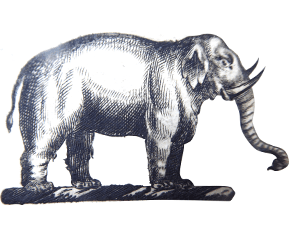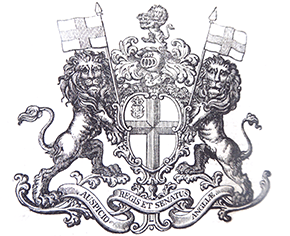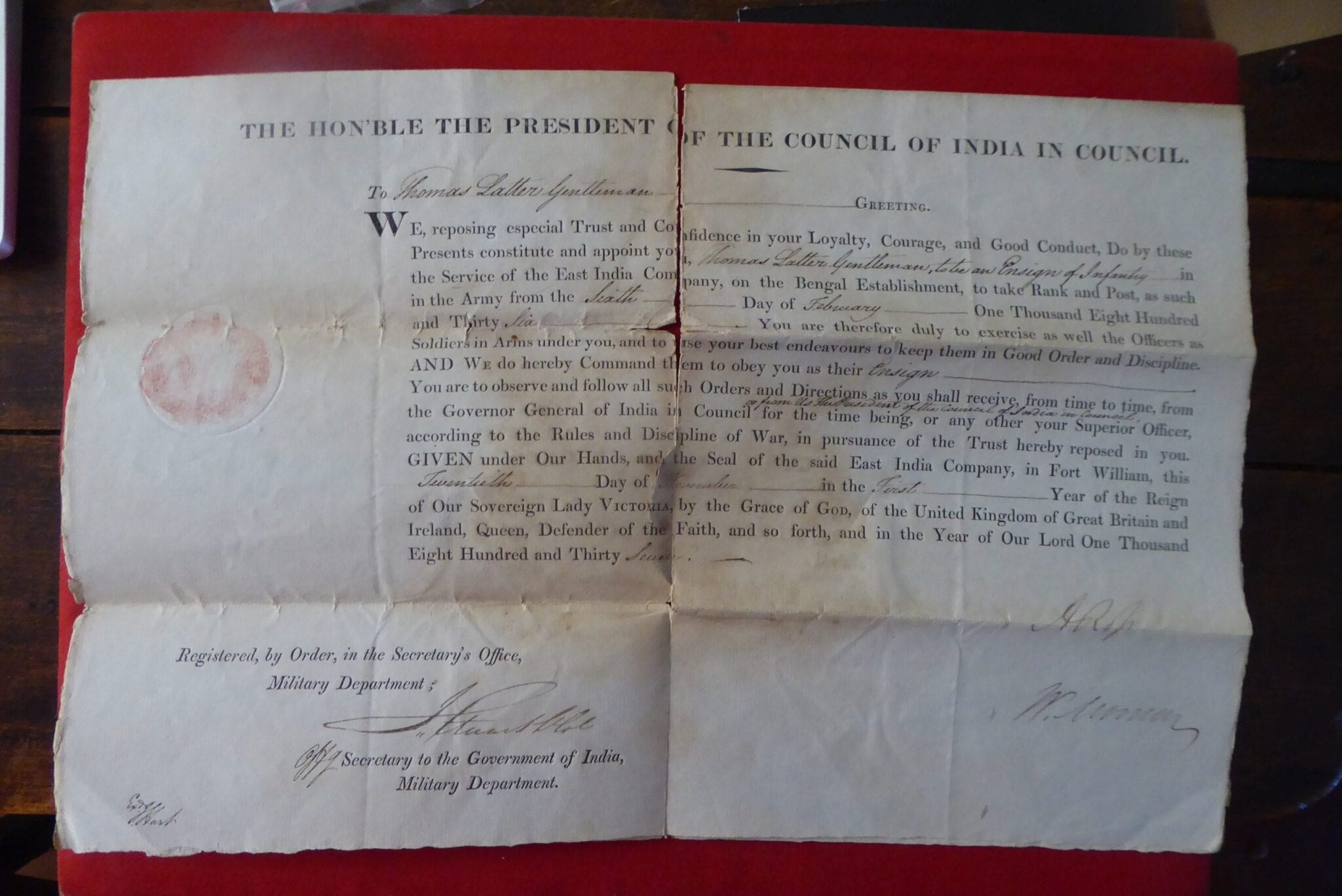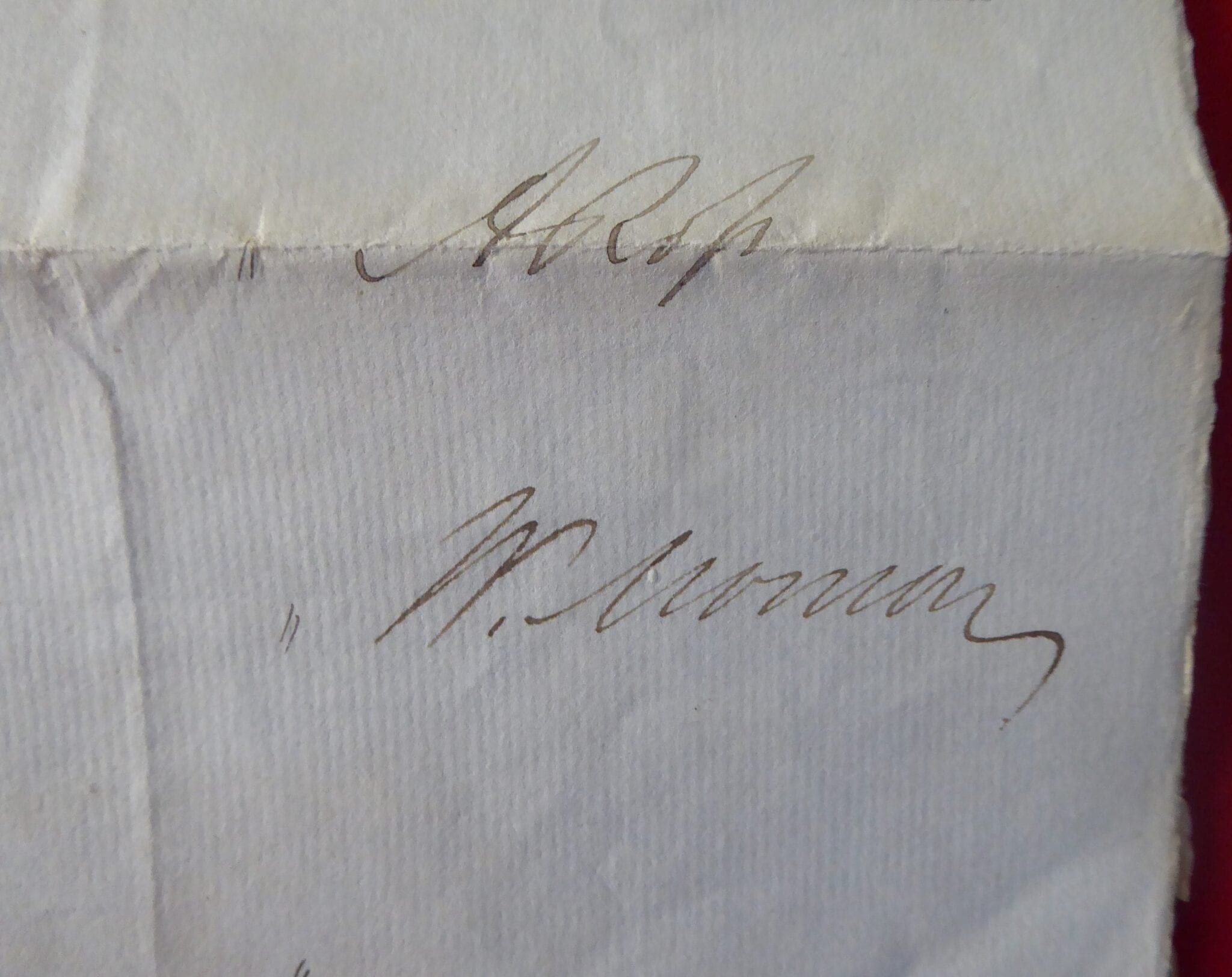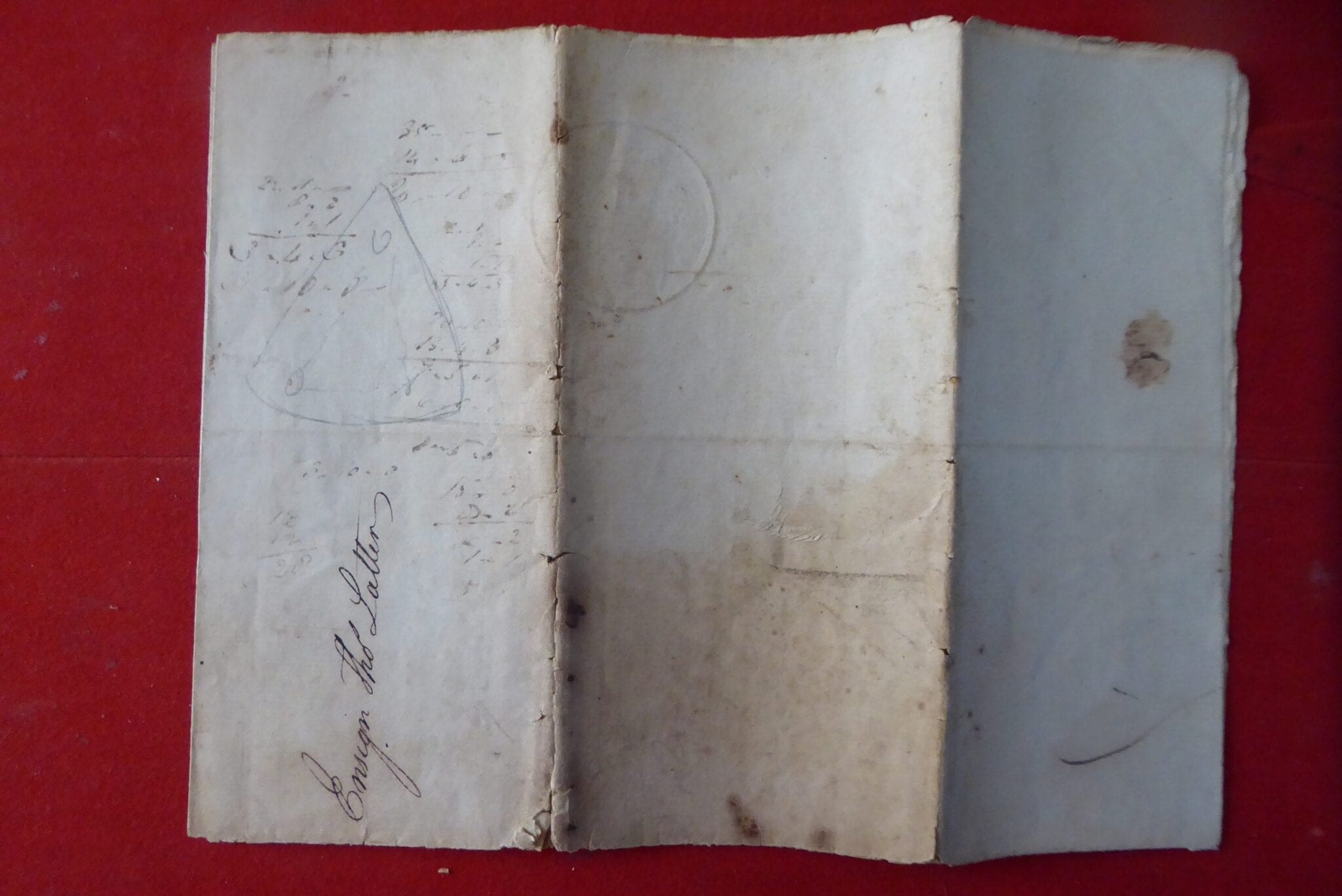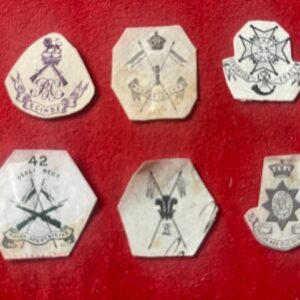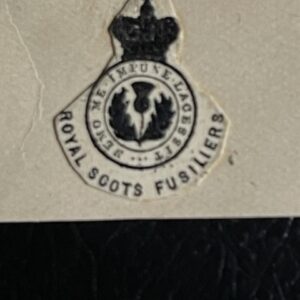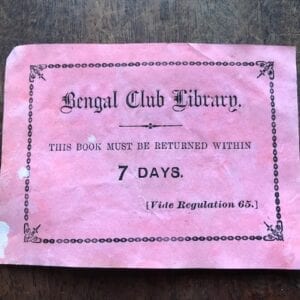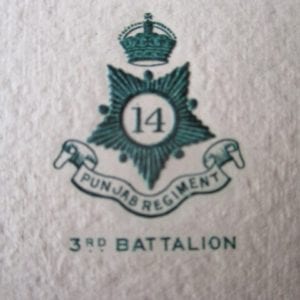An East India Company Ensign’s commission from 1837, the first year of Queen Victoria’s reign. Burma / Myanmar interest
£125.00
Thomas Latter (1816 – 8 December 1853) was a military officer of the Bengal Army and a scholar of the Burmese language.
An East India Company’s commission of 1837 appointing Thomas Latter Gentleman to be an Ensign of Infantry signed A Ross [Alexander Ross, Esq. 1st Ordinary Member of the Supreme Council] and W Morison [Colonel Wm. Morison, C.B., 2nd Member]. The bifolium has the usual three folds and paper seal of the HEIC. The paper has a vertical tear down almost the full length of the central fold with a small area of loss at the first intersection of folds. The paper seal is missing nd there is some brown discolouration in the central area of the commission. The appearance of the document could be much improved by the use of some archival tape. Despite its poor condition it has historical significance because of the recipient – renowned as a scholar and author, notorious as a military commander. See may30/1 for a much better copy of his second commission as lieutenant.
Thomas Latter (1816 – 8 December 1853) was first commissioned as an Ensign in the 67th Bengal N I when it was stationed at Benares. In 1840 the East India Register shows him as serving with a local Aracan battalion. He devoted his spare time to the study of Burmese producing a well received Grammar of the Burmese Language in 1845. At the start of negotiations over breaches of the Treaty of Yandabo Latter was transferred from the 67th to act as Interpreter tp Commodore George Lambert’s expedition to Burma. Acting as Interpreter to Sir H. T. Godwin on the outbreak of the 2nd Burmese War, on14th April 1852 he was put in command of a storming party against the eastern entrance to the Shwedagon Pagoda where his bravery was noted. After taking part in the capture of Pegu. He took part in the capture of Pegu in June 1852.
When Prome, which was a main rallying-places for the enemy was occupied Latter was appointed resident deputy commissioner on 30th December. The post a particularly difficult because, although open warfare had ceased, the Burmese were still very hostile to British influence. Latter’s use of violence in suppressing disaffected locals around Prome earned him an extremely negative reputatation with the Burmese rulers, and at 2:00 A.M. on the morning of 8 December 1853 he was murdered in his bed. He was buried at Prome with military honours on the following day. His death appears in the Casualty list of the 1854 edition of the East India Register. may30/2
1 in stock
